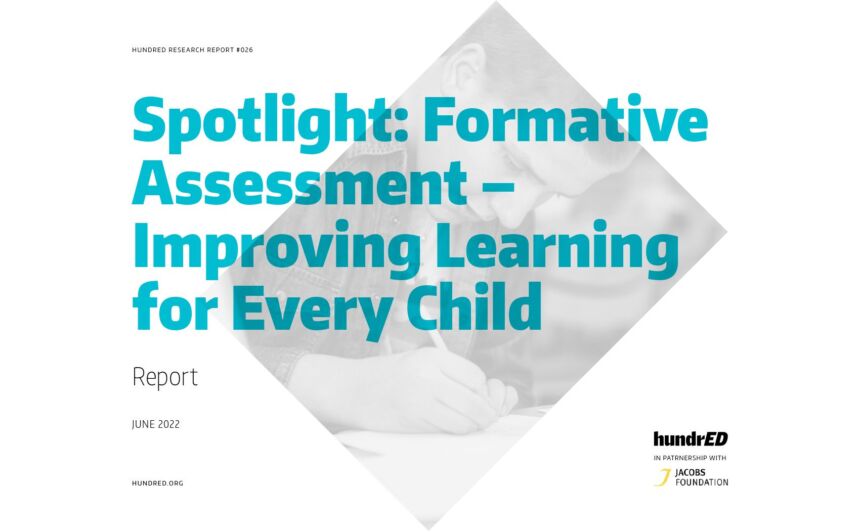The Jacobs Foundation, in partnership with Finnish education organization HundrED, has released the Formative Assessment: Improving Learning for Every Child Report. The report is accompanied by a webinar, scheduled for June 28th, at 15:00 CEST. The report finds that formative assessment increases student agency, which can lead to improved learning outcomes and student motivation. In comparison to summative assessment, formative assessment refers to a wide variety of methods that teachers use to conduct in-process evaluations of student comprehension and academic progress during a lesson or course, in order to adapt teaching to the students’ learning needs. In other words, formative assessments are for learning, while summative assessments are of learning.
“Rapid changes in the educational landscape have made it more important than ever to understand how we can best support teaching and learning”, says Julia Wyss, Jacobs Foundation Program Manager.
The report summarises the trends and benefits of formative assessment and introduces 14 solutions currently working to support teaching and learning through formative assessment.
Five critical points raised in the report are:
* Assessment culture matters in supporting the ways that formative assessment can be used effectively when an emphasis is placed on helping students learn rather than merely ranking them against each other.
* Formative assessment ensures students are aware of what they are supposed to learn and how they will be assessed. This agency in the learning process can increase student engagement, especially for students who are struggling academically.
* Teachers must be provided with the autonomy to decide how to best use the information and integrate it into their lessons.
* Formative assessment can improve teaching by supporting teachers to differentiate instruction according to learner needs.
* Digital tools are a key component of formative assessment in the creation and collection of data about students’ learning.
